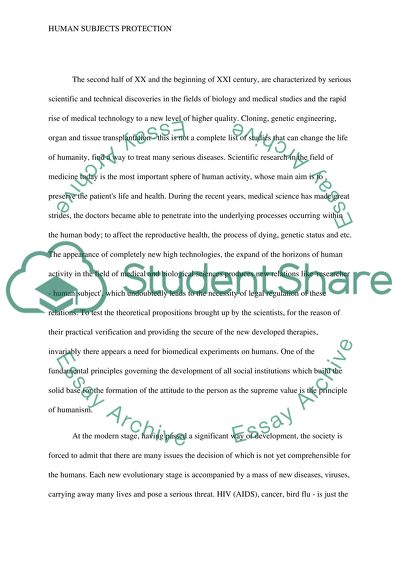Cite this document
(“Ethical research of human subjects Paper Example | Topics and Well Written Essays - 2000 words - 1”, n.d.)
Ethical research of human subjects Paper Example | Topics and Well Written Essays - 2000 words - 1. Retrieved from https://studentshare.org/psychology/1659237-ethical-research-of-human-subjects
Ethical research of human subjects Paper Example | Topics and Well Written Essays - 2000 words - 1. Retrieved from https://studentshare.org/psychology/1659237-ethical-research-of-human-subjects
(Ethical Research of Human Subjects Paper Example | Topics and Well Written Essays - 2000 Words - 1)
Ethical Research of Human Subjects Paper Example | Topics and Well Written Essays - 2000 Words - 1. https://studentshare.org/psychology/1659237-ethical-research-of-human-subjects.
Ethical Research of Human Subjects Paper Example | Topics and Well Written Essays - 2000 Words - 1. https://studentshare.org/psychology/1659237-ethical-research-of-human-subjects.
“Ethical Research of Human Subjects Paper Example | Topics and Well Written Essays - 2000 Words - 1”, n.d. https://studentshare.org/psychology/1659237-ethical-research-of-human-subjects.


